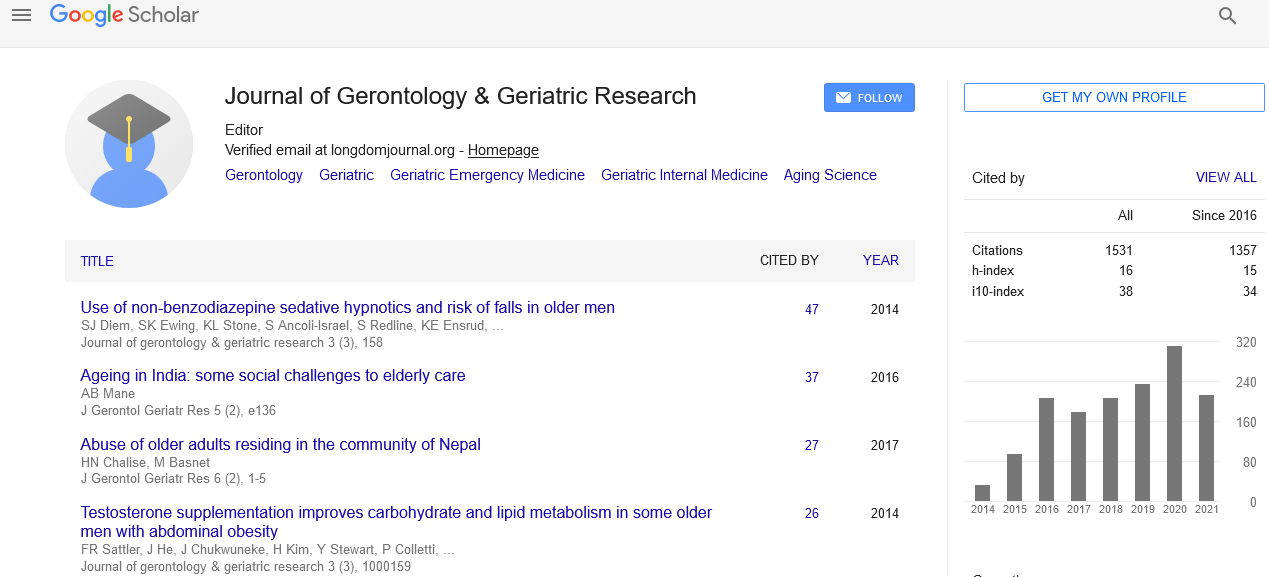PMC/PubMed Indexed Articles
Indexed In
- Open J Gate
- Genamics JournalSeek
- SafetyLit
- RefSeek
- Hamdard University
- EBSCO A-Z
- OCLC- WorldCat
- Publons
- Geneva Foundation for Medical Education and Research
- Euro Pub
- Google Scholar
Useful Links
Share This Page
Journal Flyer

Open Access Journals
- Agri and Aquaculture
- Biochemistry
- Bioinformatics & Systems Biology
- Business & Management
- Chemistry
- Clinical Sciences
- Engineering
- Food & Nutrition
- General Science
- Genetics & Molecular Biology
- Immunology & Microbiology
- Medical Sciences
- Neuroscience & Psychology
- Nursing & Health Care
- Pharmaceutical Sciences
COGNITIVE AND PHYSICAL TRAINING IN NORMAL AGING: A BEHAVIORAL AND NEUROPHYSIOLOGICAL STUDY
2nd International Conference on Aging & Gerontology
June 26-27, 2017 San Diego, CA, USA
Clemence Joubert
Université Lumière Lyon, France
Posters & Accepted Abstracts: J Gerontol Geriatr Res
Abstract:
Statement of the Problem: Facing a growing aging population, we focused on normal aging, and we wondered if we can attenuate and control its impact on cognition. We know that aging impacts working memory, speed processing and executive functions. The STAC model explains the impact of aging on the brain. This model says that as we age, there is an adaptation and a reorganization of brain functioning. As we age, we scaffold new compensatory networks. What is particularely relevant is that this model takes into consideration cognitive intervention, and this is important, because today there no pharmacological mean to counteract brain degeneration. We know that cognitive and physical training improve and support cognitive functions, and delay neurodegenerative processes. There are benefits from either cognitive and physical training. We wondered if there would be any interest to combine these two aspects in one training intervention. The aim of this research is to evaluate the contribution of physical activity to cognitive training in term of impact on cognition. Methodology & Theoretical Orientation: An inter-subject study was designed to evaluate the impact of multiple interventions. There were 5 groups: Cognitive training, Physical training, Cognitive and Physical training, Active control group, Passive control group. Behavioral and neurophysiological measures (EEG) were used to investigate the impact of cognitive and physical training on the aging brain. Findings: Cognitive and cognitive-and-physical trainings showed benefits, that look greater depending on the group. Speed processing was better improved in the cognitive-and-physical training group, whereas updating in working memory was better improved in the cognitive training group. Conclusion & Significance: There is a beginning of a demarcation between the two types of training. Physical aspect seems to provide a general improvement of speed processing, whereas cognitive aspect seems to bring improvement of answer�??s quality. We are currently collecting more datas for this study.


